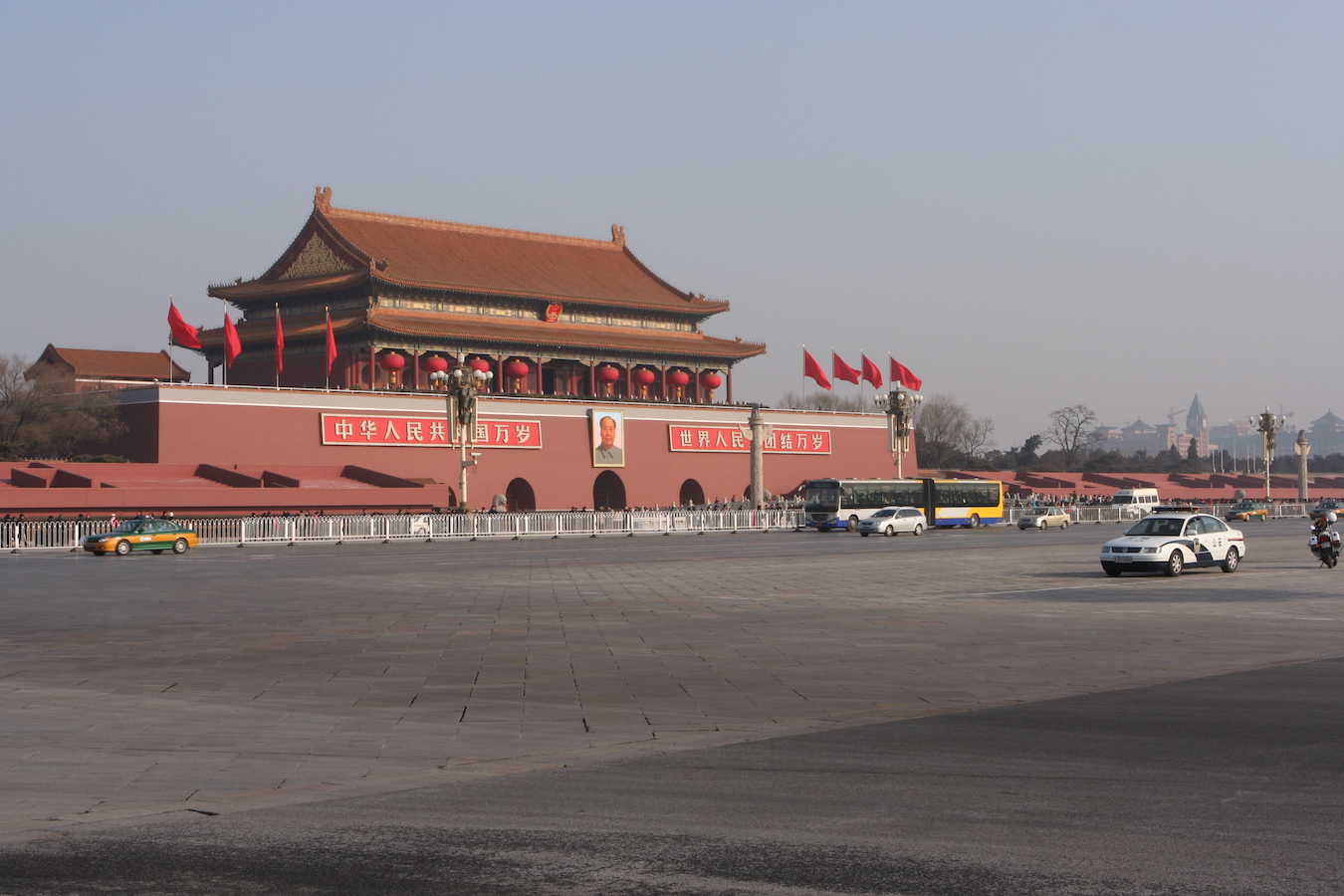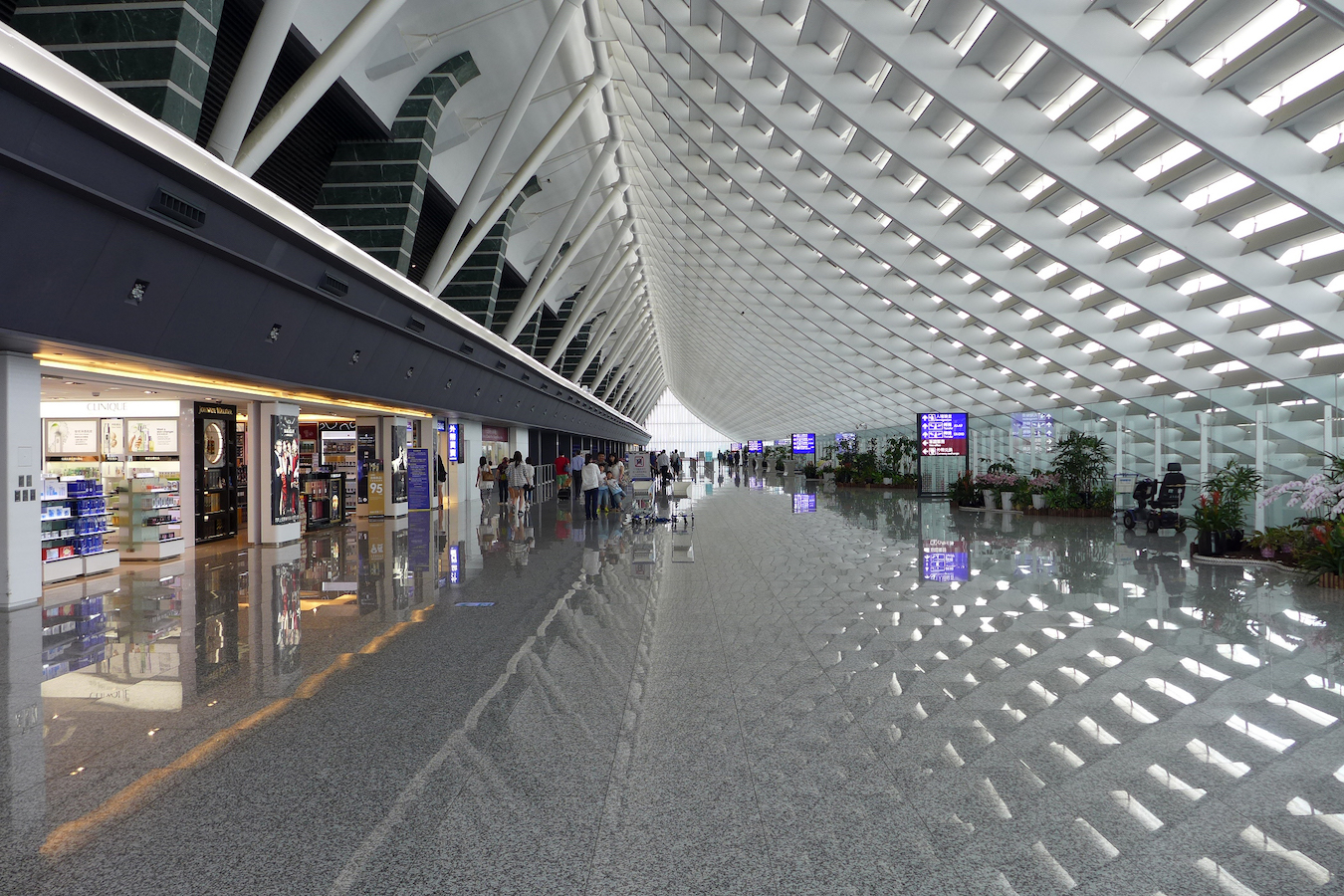by Brian Hioe
語言:
English
Photo Credit: Cheng-en Cheng/WikiCommons/CC BY-SA 2.0
LATE LAST MONTH, Chinese dissident Chen Siming entered Taiwan on a flight to Guangzhou that was transiting through Taoyuan International Airport. There, Chen announced his wish to resettle in a third country such as the US or Canada, requesting that the Taiwanese government assist with this. Chen arrived on September 22nd.
Chen carries out commemorations of the Tiananmen Square Massacre annually, carrying this out yearly since 2016. As such, in recent years, Chen has been detained ahead of the June 4th anniversary of the Tiananmen Square Massacre. To this extent, Chen also organized solidarity activities for the 2019 protests in Hong Kong, including with regards to when a medic was blinded by police after being shot in the eye. Chen was warned by Chinese state security forces about his actions.
In May, Chen believed that he faced imminent targeting from Chinese authorities, posting about this on Facebook. Chen fled to Laos in July, then moved onward to Thailand after the arrest of Chinese human rights lawyer Lu Siwei there. In Bangkok, Chen was granted a one-year asylum ID after registering with the United Nations High Commissioner for Refugees.
 Photo credit: LuxTonnerre/WikiCommons/CC BY 2.0
Photo credit: LuxTonnerre/WikiCommons/CC BY 2.0
Chen stated that he did not hope to cause trouble for Taiwan and the Taiwanese government claims it is handling the situation. However, there are past precedents of Taiwanese dissidents being kept waiting in Taoyuan International AIrport for significant periods of time, after entering Taiwan through a transfer flight and seeking to claim asylum. Chen stated that Beijing has already invalidated his passport so he cannot return and he would likely face charges if he did.
Two weeks later, it was announced that Chen would be resettling in Canada. As such, this avoided an outcome in which Chen was left marooned in the Taoyuan International Airport for months.
In late 2018 and early 2019, two Chinese asylum seekers were stranded in the Taoyuan International Airport for over one hundred days. Yan Bojun and Liu Xinglian arrived in Taiwan through a transfer from Thailand. The two had a known and verifiable history of activism, seeing as Yan was a participant in the New Citizens’ Movement and Liu was one of the founders and the secretary-general of the NGO China Rights Observer. Yan had previously been imprisoned in China for nine months, following which developed a tumor on his left adrenal gland, and he alleged torture during his imprisonment.
Yan and Liu were hoping to seek asylum in Taiwan or elsewhere, with Yan having fled China to Thailand after hiding in the compartment of a bus for over 24 hours, and then having decided to leave Thailand after police began visiting the clinic he was illegally working at. Nevertheless, in the absence of international or domestic attention to Yan or Liu’s plight, the two stayed in the Taoyuan International Airport for over four months.
When MAC officials attempted to persuade the two to return to China or suggested that they would be sent to another country, Liu’s response was to swallow a large amount of hypertension medication in a possible suicide attempt, something that required emergency assistance. Even this did not lead to Taiwanese authorities relenting, though the two were provided with daily meals.
 Photo credit: Wing1990hk/WikiCommons/CC BY 3.0
Photo credit: Wing1990hk/WikiCommons/CC BY 3.0
It is thought that a contributing factor to the indecision about what to do with Liu and Yan was conflicting bureaucratic interests between government agencies, such as the Ministry of Foreign Affairs, MAC, and the National Immigration Agency. Eventually, the two were allowed to enter Taiwan after temporarily flying to Singapore to change visas, and later resettling in Canada.
It is possible that in the absence of reporting on his situation, Chen would have simply just stayed in Taoyuan International Airport. For one, there was international reporting on his case as soon as he arrived in Taiwan, and advocates called on the Taiwanese government to allow Chen in, following the precedent set by Liu and Yan. Yet it is likely that the Taiwanese government required Chen to stay in Taoyuan International Airport for at least two weeks in the hopes of avoiding a wave of similar asylum seekers. The Taiwanese government may be cautious of the Chinese government retaliating against Taiwanese in China if it allows Chinese asylum seekers to enter the country.
In particular, human rights organizations have long called attention to Taiwan’s lack of any asylum procedure, which would allow for a clear standardized policy about how to deal with asylum seekers. Even if concerns have been raised in the past about the potential for infiltrators pretending to be asylum seekers, a clear process for asylum seekers to apply to enter Taiwan would allow for standardized security checks in a manner that the current, case-by-case process does not allow for. But without public pressure, this is unlikely to be an action that the government takes action on, seeing as the public could potentially react against asylum seekers with the view that the government is allowing individuals who are a drain on social resources to enter the country.

